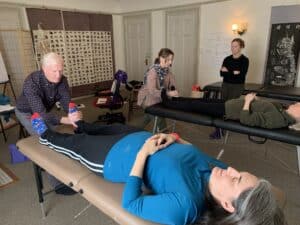Alternative Treatments for Alcohol Use Disorder
Alcohol is everywhere at social gatherings, from baby showers to book clubs to work events. As the universal social lubricant and self-medication for stress, it’s easy to dismiss alcohol’s addictive potential or even joke about it. Yet for millions, alcohol consumption becomes a destructive compulsion that they can’t control or stop. It damages not only the physical and emotional well-being of the users, but the lives and relationships of those around them. The social cost and public health burden of alcohol use disorder (AUD) is enormous. In the search for a wider array of effective treatment options, acupuncture has emerged as a powerful adjunctive therapy for AUD.
The study of acupuncture for treatment of AUD is ongoing, but a growing body of research suggests it can help sufferers to both quit and stay quit. Acupuncture helps not only to alleviate withdrawal symptoms, but also to recover from the damaging health consequences related to AUD. It’s worth exploring the holistic benefits of acupuncture and how seeking treatment offers support for the body, mind, and spirit.
What is Alcohol Use Disorder?
Alcohol use disorder is a medical diagnosis used by health professionals to describe someone with an alcohol problem. Alcoholism is a non-medical term used in everyday language to describe the same thing. A formal diagnosis of AUD meets certain specific criteria. The gist, however, is compulsive use and lack of control over consumption, along with a negative emotional state when not consuming alcohol. It’s estimated that approximately 15 million people in the U.S. have AUD, and more men than women tend to be diagnosed each year.
Without a doubt, there are brain changes that occur in people with uncontrolled drinking. Nonetheless, focusing on AUD only as a physical condition leaves out the larger causes and consequences. The term “addiction” is used to characterize behavioral issues of the disease, whereas “dependence” refers to a physical reliance on a substance. With AUD, addiction and dependence most often occur together. Both need to be addressed for treatment to be effective.
The Damaging Effects of Alcohol
While an estimated 240 million people around the world suffer from AUD, treatment options are limited. Less than 10 percent of people with AUD seek or receive any form of treatment. The long-term negative effects of alcohol dependence have been widely studied and reported, such as brain damage, liver disease, heart disease, certain cancers, immune system dysfunction, and even death.
Even when someone with AUD decides to seek treatment and to quit drinking alcohol, withdrawal symptoms may be so severe that the person goes back to drinking. Common alcohol withdrawal symptoms include trembling, insomnia, increased anxiety, and hallucinations. In more severe cases, seizures can occur hours or days after the last drink, and some individuals experience a condition known as delirium tremens, where dangerous shifts in breathing, circulation, and temperature control may cause a steep rise in blood pressure and heart rate. Severe withdrawal symptoms such as seizures can be medically dangerous, and withdrawal may require monitoring at an in-patient treatment facility.
Root Causes of Alcohol Use Disorder: Healing Trauma
Extensive research shows that there is a genetic predisposition for alcoholism, but genetics is less than half of the picture. It’s been widely said that “genetics loads the gun, and environment pulls the trigger.” The most important part of breaking the cycle of addictions for good is acknowledging and working on the root causes of suffering. Unhealed traumas, destructive behavior patterns, existential loneliness, poor nutrition and self-neglect all need to be addressed. Otherwise, alcohol becomes the go-to coping mechanism for managing symptoms of traumatic stress.
How Acupuncture Can Help Treat AUD
Acupuncture can help at every stage of recovery from AUD. During withdrawal, it can help reduce cravings and other symptoms. Even more, acupuncture can be a tool for long-term recovery. In particular, Five Element acupuncture can help address the unhealed trauma, emotional issues and chronic health problems that come with AUD.
Auricular acupuncture, which stimulates acupoints in the ear region, has been used to treat addictions since the 1970s. Studies indicate that alcoholics who received ear-acupuncture relaxation therapy reported that the therapy helped them experience improvements in their lifestyle, drinking pattern, and physical and mental health, even two years later. A 2017 meta-analysis demonstrated that acupuncture intervention was more effective at reducing alcohol-related symptoms and behaviors than the control intervention.
A recent review of the research on acupuncture for AUD found the following potential benefits:
- alleviating physical withdrawal symptoms, including tremors and pain sensitivity
- reducing anxiety during withdrawal
- reducing cravings for alcohol
- reversing memory impairment and improving spatial learning
- modulating stress response (hypothalamic-pituitary axis, HPA)
- rebalancing neurochemicals and hormones in addiction-related areas of the brain
Begin Your Wellness Journey Today
If you have been struggling with alcohol addiction, or if you simply want to reduce your drinking while supporting your overall health, Inner Works Acupuncture can help. Schedule an appointment at our Portland clinic by calling (503) 227-2127 today.
References
- Mate, Gabor. In the Realm of Hungry Ghosts. 2010, North Atlantic Books.
- Whitaker, Holly. Quit Like a Woman. 2019. The Dial Press.



